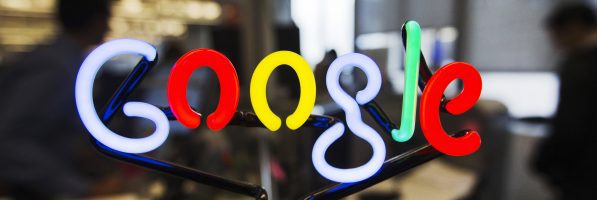London Business School Prof Warns of the Future for Tech Giants

Last year, tech giants such as Google, Amazon, and Facebook already started facing new regulations and pushback from government officials. For example, last November, the State of Missouri launched an investigation into Google to see if it had violated antitrust and consumer protection laws. Julian Birkinshaw, a professor of strategy and entrepreneurship at London Business School, thinks that’s only the beginning.
“The tech giants are huge beasts, and there is a growing sense of unease about their power,” Birkinshaw said in a news article on the school website. He went on to talk about various fines already levied against big tech firms such as Google, which was ordered to pay €2.4 billion last June for abusing its internet search monopoly to promote its online shopping service. Facebook, meanwhile, got slapped with a €110-million fine by the European Union for providing misleading information about its takeover of WhatsApp.
According to Birkinshaw, these examples are just the tip of the iceberg. “Over the coming year we can expect to see more of this aggressively activist approach in tackling companies with dominant positions,” he wrote.
What’s driving this more aggressive regulation? Birkinshaw believes it has to do with the old supplier-manufacturer-distributor-consumer model, which doesn’t fit these new tech giants. Antitrust legislation wasn’t designed to cope with tech companies whose profitability increases rapidly alongside its growth.
For example, Facebook has more than two billion active users, Google handles 42 percent of all U.S. digital advertising, and Amazon has all but eliminated would-be competitors. Birkinshaw sees no signs of these companies slowing down.
“The more people who join Facebook or use Google, the more data the company can mine. The economies of scale become ever greater,” Birkinshaw wrote. “So we need to rethink the way we monitor the power of the huge companies now dominating the business landscape.”
This article has been edited and republished with permissions from our sister site, Clear Admit.
Amazon Talks About Its Success and Recruiting at London Business School

It’s not that surprising to hear about Seattle-based Amazon recruiting from top U.S. MBA programs such as the University of Michigan’s Ross School of Business, where it was the number-one recruiter in 2016, hiring 31 of the school’s MBA grads. What might be more surprising is the fact that Amazon is also a big recruiter at London Business School (LBS), where it snapped up 13 Class of 2016 MBA graduates, right behind BCG, McKinsey, and Bain. When speaking to students and alumni at an LBS event, Doug Gurr, Amazon’s U.K. country manager, said, “The U.K. is an amazing location to recruit great talent, and LBS is somewhere we find the talent we need.”
Currently, the United Kingdom is a prime location for Amazon, with more than 24,000 employees and 373,000 U.K. businesses as part of its marketplace, web, and publications services. This makes recruiting in the United Kingdom easily fit into Amazon’s founding principles, which include customer obsession, passion for invention, commitment to operational excellence, and long-term thinking. As Gurr admitted, “The biggest constraint on our growth is finding the right leaders to join us,” and LBS is known for producing quality MBA graduates and business leaders.
However, hiring in the United Kingdom isn’t the only key to Amazon’s success. Gurr explained that the company is also focused on unmet customer needs. For example, that’s how the Kindle came about. “The Kindle didn’t exist so we built it,” said Gurr. “We’d never built anything before, but we had passion and conviction about the quality of the idea. That was the genesis of our move into manufacturing hardware devices.”
Other inventions from Amazon include Alexa, its cloud-based voice service, as well as flying autonomous drones, and hundreds of other small improvements. To Gurr, it’s all these small things that make Amazon faster, simpler, and better than its competitors.
The thing to note according to Julian Birkinshaw, a professor of strategy and entrepreneurship at LBS, is that this slow growth can also mean slow profits. “In 2016, you generated US$136 billion (£102 billion) in revenues and a net income of US$2.4 billion (£1.8 billion), which is less than 2 percent,” Birkinshaw said. “That’s small, but that has always been the story.”
But, according to Gurr, that growth trajectory is exactly what the company wants. “We optimize free cash flow over the long term,” he explained. “The simple answer is that we’re willing to make deep, long-term investments—we don’t need an instant payback. We do what’s right for the customer and what’s right for the business.”
To read more about Amazon’s MBA graduate recruiting efforts, read the Financial Times article, “Amazon’s Shopping Spree at Business Schools.”
